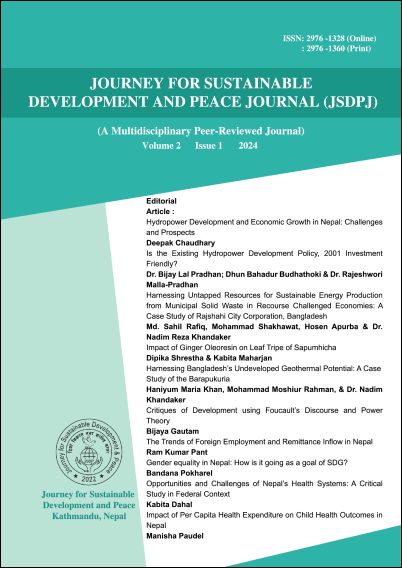Critiques of Development using Foucault’s Discourse and Power Theory
DOI:
https://doi.org/10.3126/jsdpj.v2i1.63253Keywords:
Discourse,, power, knowledge, development, FoucaultAbstract
Analyzing the modern development program through Michel Foucault's theory of discourse and power provides insights into its origins and shortcomings. This research aims to critique modern development theory in terms of Foucault’s theory of discourse and power. Development, and modern development theory as well as Escobar’s articles about the implementation of Foucault’s theory were studied. The research found that the discourse surrounding development serves as a means of exerting power and control, often driven by the interests of dominant nations. However, despite ambitious promises, development programs frequently fail to achieve meaningful progress due to the power dynamics and inequalities embedded in the modern development discourse which excludes local discourse. Applying Foucault's framework challenges universal claims and grand narratives, opening avenues for critical analysis and a post-modern understanding of development. This approach prompts a reevaluation of power dynamics, knowledge production, and discursive practices, aiming for context-specific approaches that address the diverse needs of underdeveloped nations.
Downloads
Downloads
Published
How to Cite
Issue
Section
License
This license enables reusers to distribute, remix, adapt, and build upon the material in any medium or format for noncommercial purposes only, and only so long as attribution is given to the creator.




